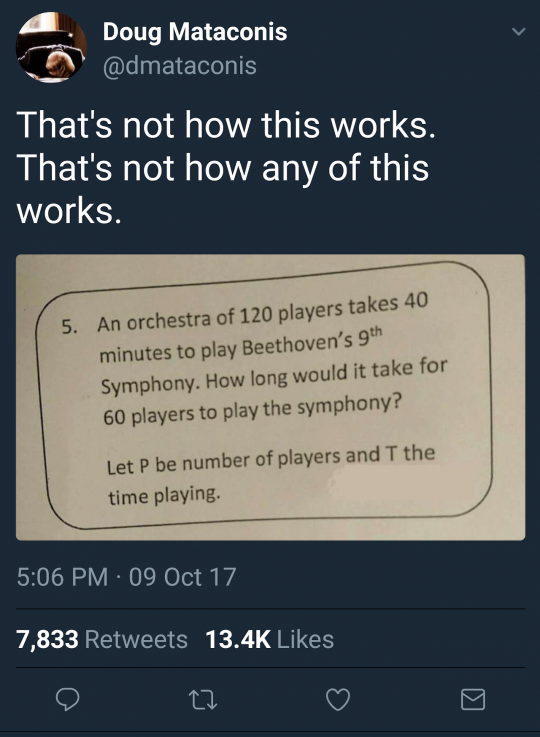4800 players, Beethoven’s 9th Symphony Speedrun
60 players would play it in 40 minutes, or perhaps slightly less. There is a scenario where it might take more, I’ll get to that.
The second part probably bears some explanation. Any composition, excepting perhaps stretches designated for improvisation, has a defined amount of time it should take. If everyone plays perfectly, one musician or a billion musicians will take exactly that amount of time, no more, no less.
But we’re dealing with humans, and even robots would have humans involved at some stage of their manufacture or operation- so perfect playing is out of the question. Herein is where the orchestra size can matter.
The most likely case for deviation would be that they take less time- specifically, that it should take something like 39:30, and the 60 gets it in 39:45. Why? Simple. With a larger orchestra, the average difficulty of seeing and keeping up with the conductor, and managing other cues to keep everyone on the same sheet of music(haha), will be harder. This will slow down the orchestra. Reducing the number of people will make coordination easier, which will speed things up.
That said, I’m assuming the cut is managed to ensure that all parts are properly represented in roughly equal proportion. But what if that’s not the case? Instead of taking 6 flutes down to 3, you keep all the flutes and decapitate your entire percussion section instead. Percussion is the primary timekeeping cue within a piece itself, and losing it will make people slow down so that they can stay coordinated, and the disturbing sight of all your percussionists heads rolling around while their neck stumps spout blood is likely to slow them down further. Thus, in some distributions of cuts as well as some methods of enforcing the cut, the orchestra might slow down.
